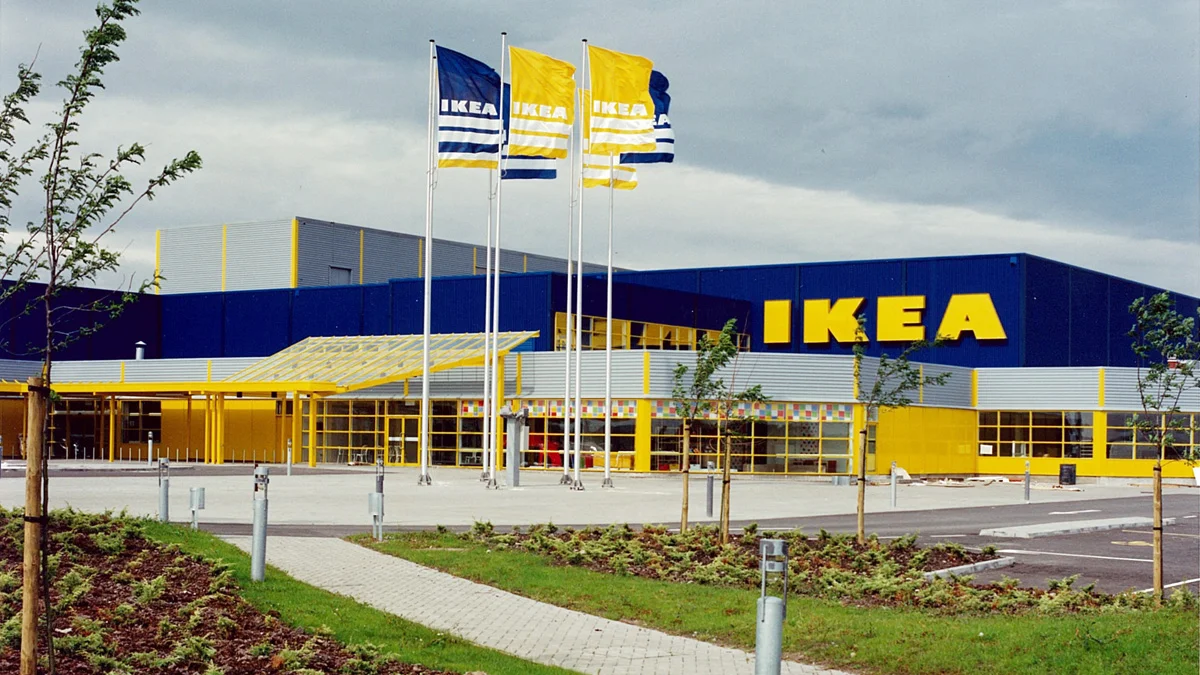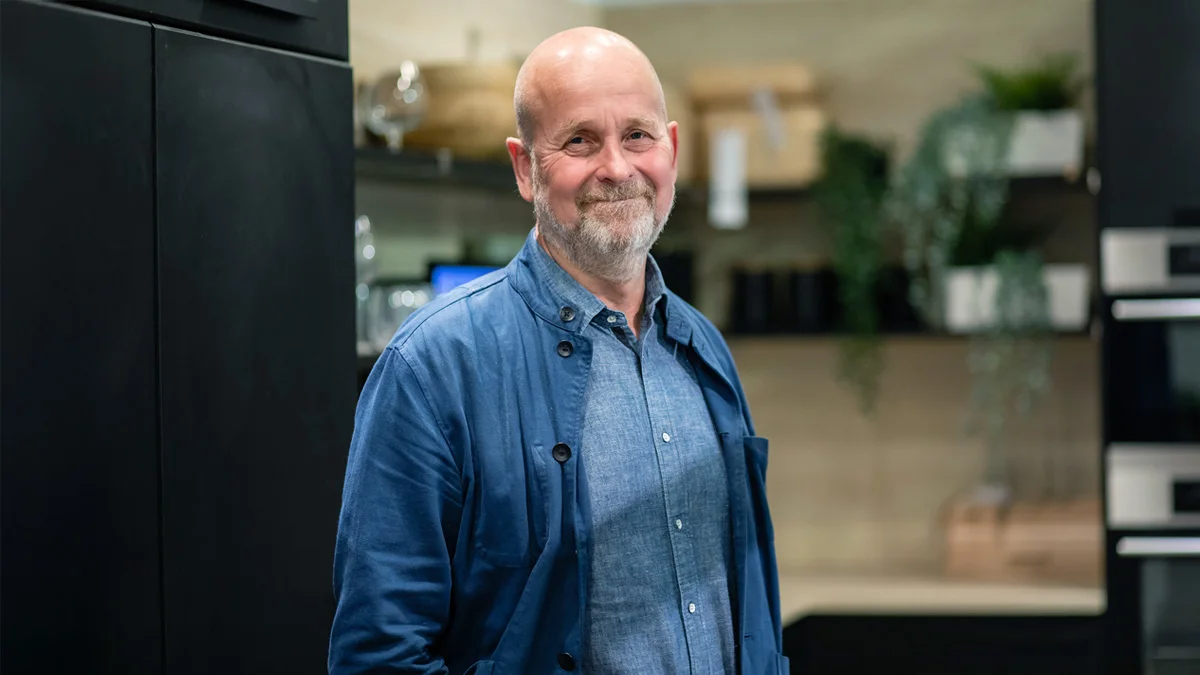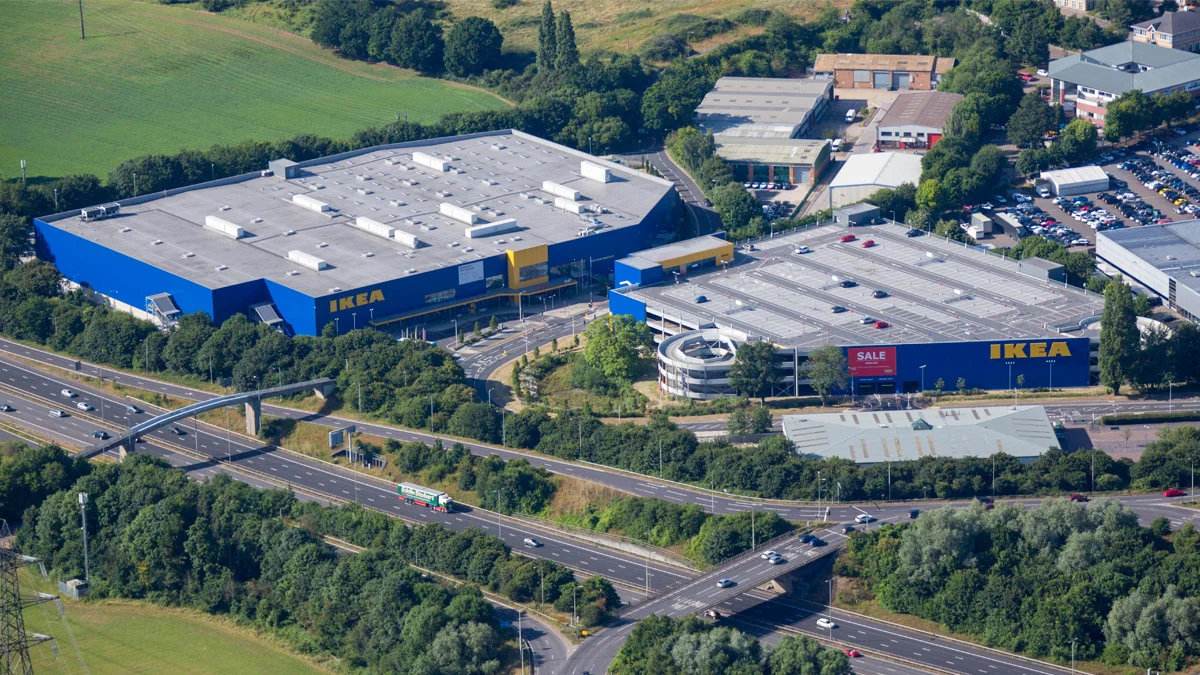
Like many within Ikea, Peter Jelkeby has worked for this unique business for years. Today, he runs Ikea in the UK and Ireland, which generates more than £2bn in annual revenue, has 22 shops, three click-and-collect points and more than 12,000 employees.
His Ikea story started as a student in Sweden in the 1980s when he had a part-time job driving forklift trucks in a warehouse. But Jelkeby had no intention of beginning his full-time career with the company until a twist of fate.
Jelkeby was studying marketing and wanted to do a thesis on businesses expanding into the Soviet Union, as it was then. Ingvar Kamprad had just agreed with Mikhail Gorbachev to expand the furniture brand there, and Jelkeby asked Ikea if he could study its move.
“Straight away, Ikea said: ‘No, we are not interested in giving you any kind of study here, but you can come and work if you’re willing to,’” Jelkeby recalls. He spoke to his partner – now his wife – about the offer and they decided to head to Moscow.

“I started in purchasing. I’d never been in a purchasing department in my life, but that’s Ikea,” Jelkeby says. “That’s the beauty of the company. They trust you and throw you into the deep water and you have to survive. For me, it was a great adventure.”
Jelkeby spent 10 years in the Soviet Union and then Russia before helping Ikea to open in other countries including Vietnam. He arrived in the UK in 1999, working as manager of Ikea’s store at Lakeside in Essex before moving into marketing and sales and then becoming the deputy country manager.
He was tempted away from Ikea by the chance to take a senior role at Clas Ohlson, the Swedish homeware and electrics chain, where he stayed for a decade. But in 2019, he came back to Ikea to lead the UK and Ireland business, which is one of the biggest in the company.
“A friend of mine who was still connected to Ikea asked me a question: would I be interested in talking to the company again? And I did. The UK and Ireland came up on the table [as a job]. That made a huge difference for me and I felt it in my stomach. It’s my favourite market. It was kind of an emotional decision. Rational, but also emotional.”
Ikea had arrived in the UK in 1987. Its first shop was not in London, or even a big city, but in Warrington in Cheshire. Ikea made a bold entrance. Its shops were big, its advertising brash and its furniture cheap.
Britons had not seen anything like this. Ikea told households to change their old-fashioned taste in furniture and switch to its modern Scandinavian style by launching an advertising campaign with the slogan “Chuck Out Your Chintz”. It launched another campaign in the late 1990s with the slogan “Stop being so English”.
Jelkeby says Ikea and the UK were a natural match. “I think the UK is a unique retail market. It’s the best. I love to work in this retail environment. It’s very competitive, the consumers are demanding and it’s an important part of the economy,” he says. “I think it suited our entrepreneurial way of working. We had a clear identity when we came in. We were ‘Chuck Out Your Chintz’ and coming in with our Scandinavian style. But we also respected the UK consumer and the Irish consumer.”
Jelkeby and the UK team are tasked with picking the Ikea products they want to offer in this country and opening and running the shops, but also feeding back to Ikea’s global HQ about what products customers are looking for. Ikea conducts an annual Life at Home Report on household habits and also does home visits to understand what problems people are facing.
Read or listen to our interview with Jesper Brodin, the CEO of Ingka Group, the business behind Ikea's global retail operations, here.
“We can use our expertise and experience to take data about consumers but then make it ours and stretch it,” Jelkeby explains. “You are bringing data in and consumer knowledge, but you also need to have a point of view and you need to stretch within that. If you want to take care of your pots and pans in your kitchen, our job is to make as good a solution as we can. That’s why we have fantastic designers in Ikea to work with.”
The size of the UK market and the tough competition in it mean that Ikea can use it to trial new formats or online offerings. Up to 51.4 per cent of Ikea sales in London are now undertaken online, the highest in the world.
“It has taught us that we need to embrace how consumers want to shop and how we go with it,” Jelkeby says. “On the question of physical versus online, we need to understand how customers are using it. It is easy to look in isolation and say: ‘OK, let’s gear up the online capacity’, but you need to do that in the context of the stores.
“We had a big transformation that started with Covid – there was only one way of shopping with us as we had to close down our stores. We could not get the capacity that quickly, so we used our stores to fulfil [online orders]. It turned out to be a success and a success that is still with us today. We were able to embrace the online shop by using the assets we had. It became a win-win.”

Ikea’s investment in a new space on Oxford Street is an example of how the company is continuing to back bricks-and-mortar retail. It is also opening more click-and-collect points plus a buyback scheme that lets people return old products they have used in return for store credits. In the past financial year, 52,600 products were brought back by customers, with Ikea selling them on as second-hand or reusing the materials.
“We see it as a customer journey or experience. It is not about either/or,” Jelkeby says of Ikea’s offering across shops and online. “You can go to the store and finish the purchase there, but you can also try out the furniture, feel the fabric, talk to a co-worker and return home to do the final order.
“The whole customer journey is so fluid today. If you want to have a kitchen, bedroom or so forth, we have apps where you can actually plan, play around with our products and place them into your room. You can do a lot of things without needing to come to the store.”
Jelkeby is encouraged to adapt and evolve Ikea’s offering by the ethos and structure of the business, which puts trust in those running the shops in each country.
“We are entrepreneurs – dare to do different, learn from your mistakes. Those kind of cultural values have helped a lot,” Jelkeby says. “For me, it was sometimes frustrating. It was ‘whoa, I’ve never done this before’. But I always felt there was someone around to ask. I think you grow a lot.
“We are good on cross-fertilisation. We can give someone the opportunity to take a leap to soar somewhere else. Of course, you need to have a balance of that so you don’t lose core competencies, but the beauty is that we are connected together.”
Related and recommended
The hotel executive believes the hospitality industry needs to be proactive in hiring to reflect society
The legendary ad exec believes leaders should collaborate with the technology, rather than use it as a tool
Entering new markets drives growth but can trip up the unwary. Here’s everything you need to know before you start
Richard Harpin, the founder of HomeServe and Growth Partner and owner of Business Leader, answers your burning business questions
